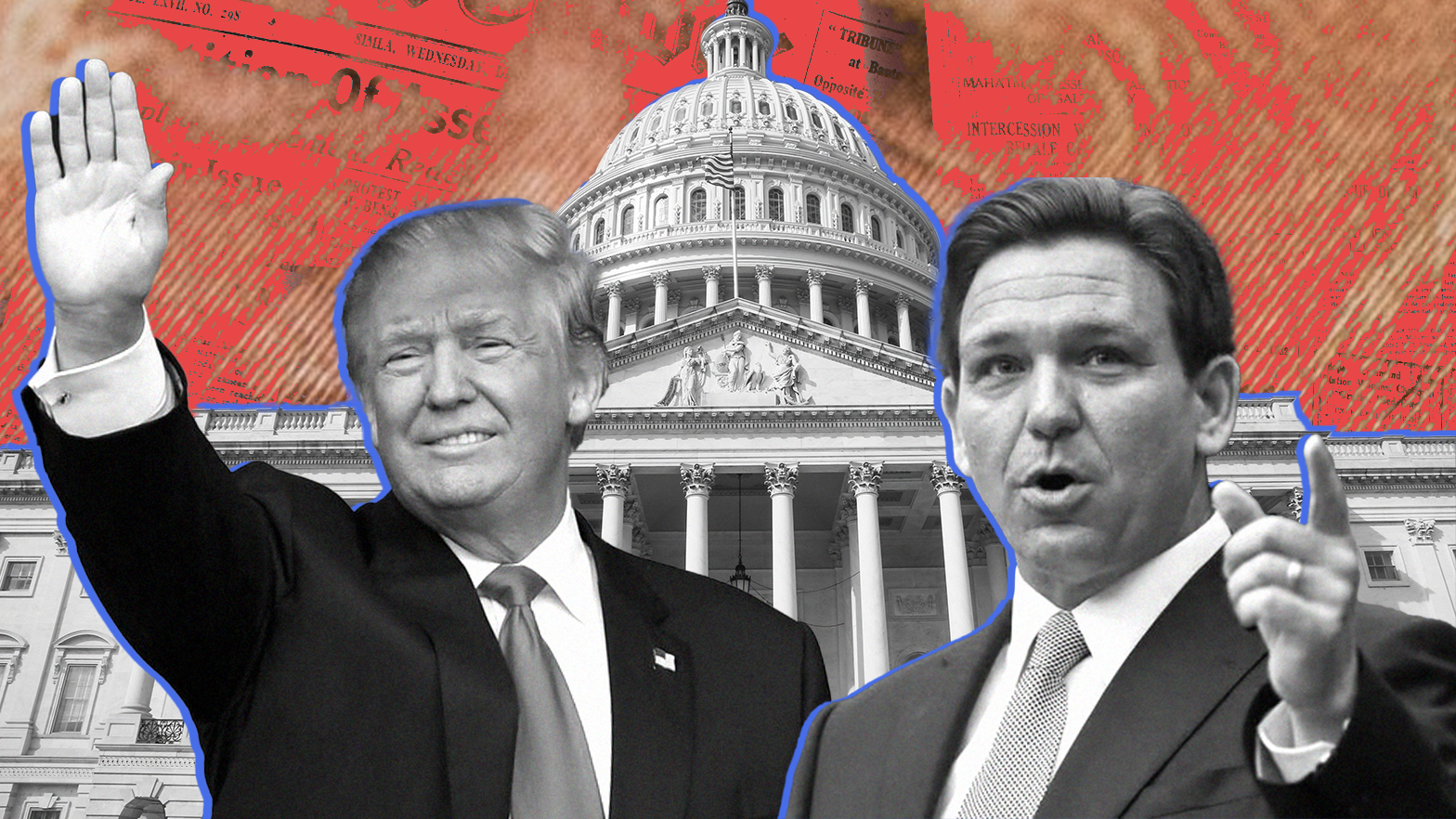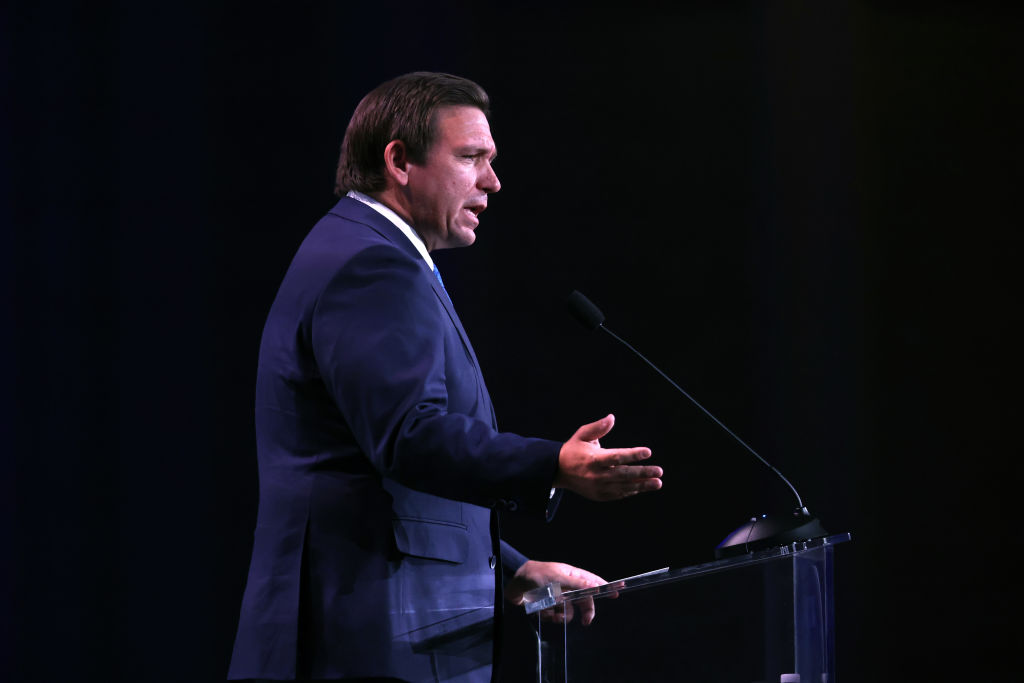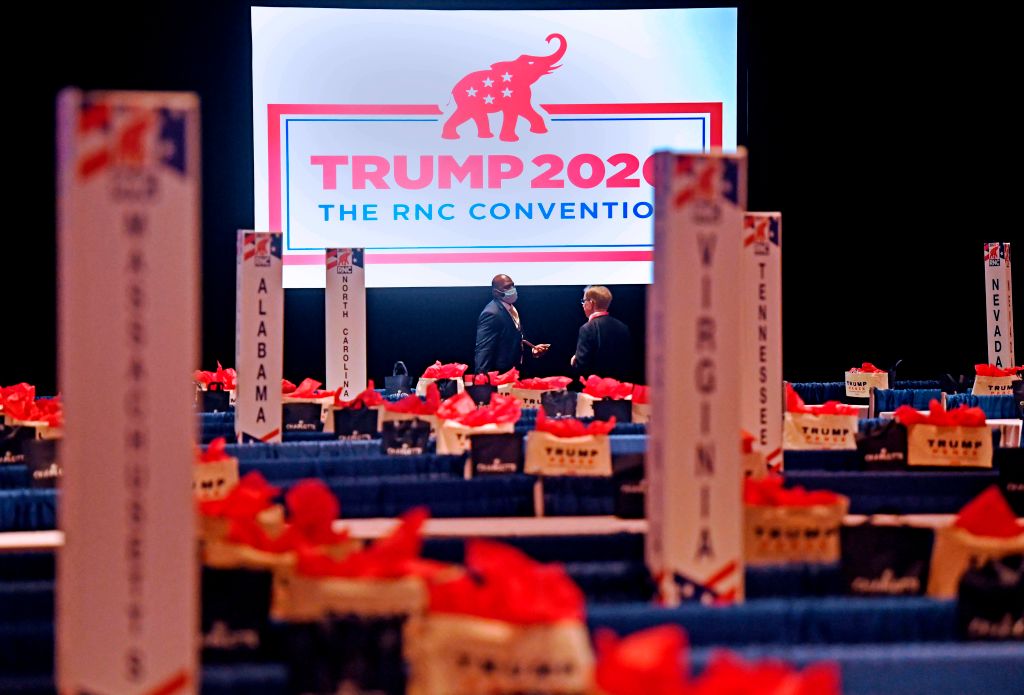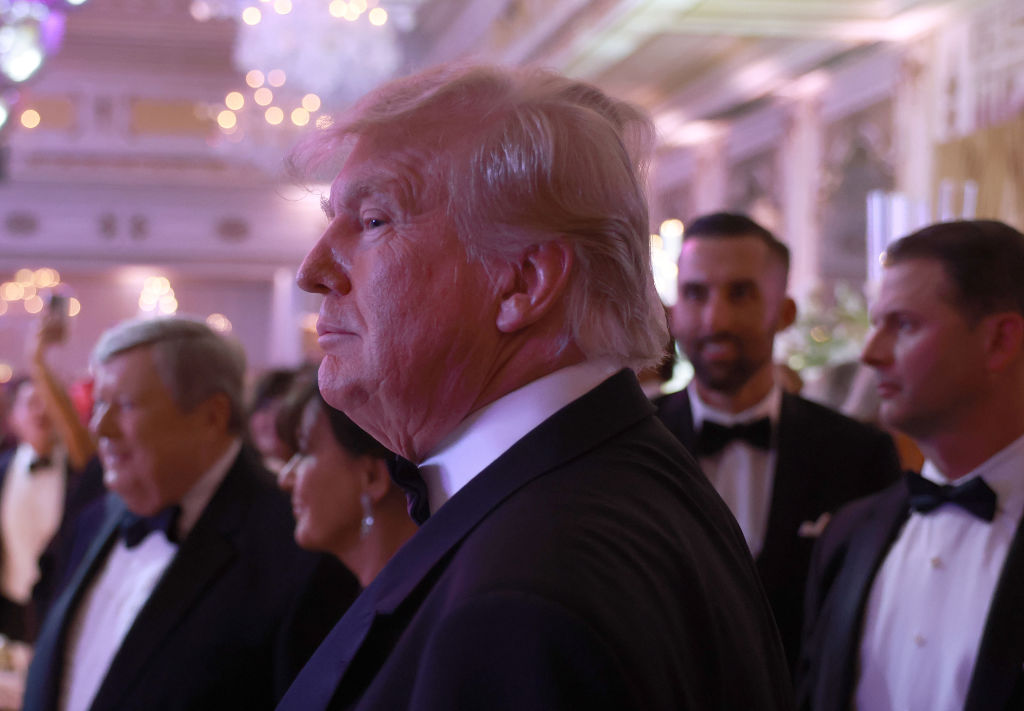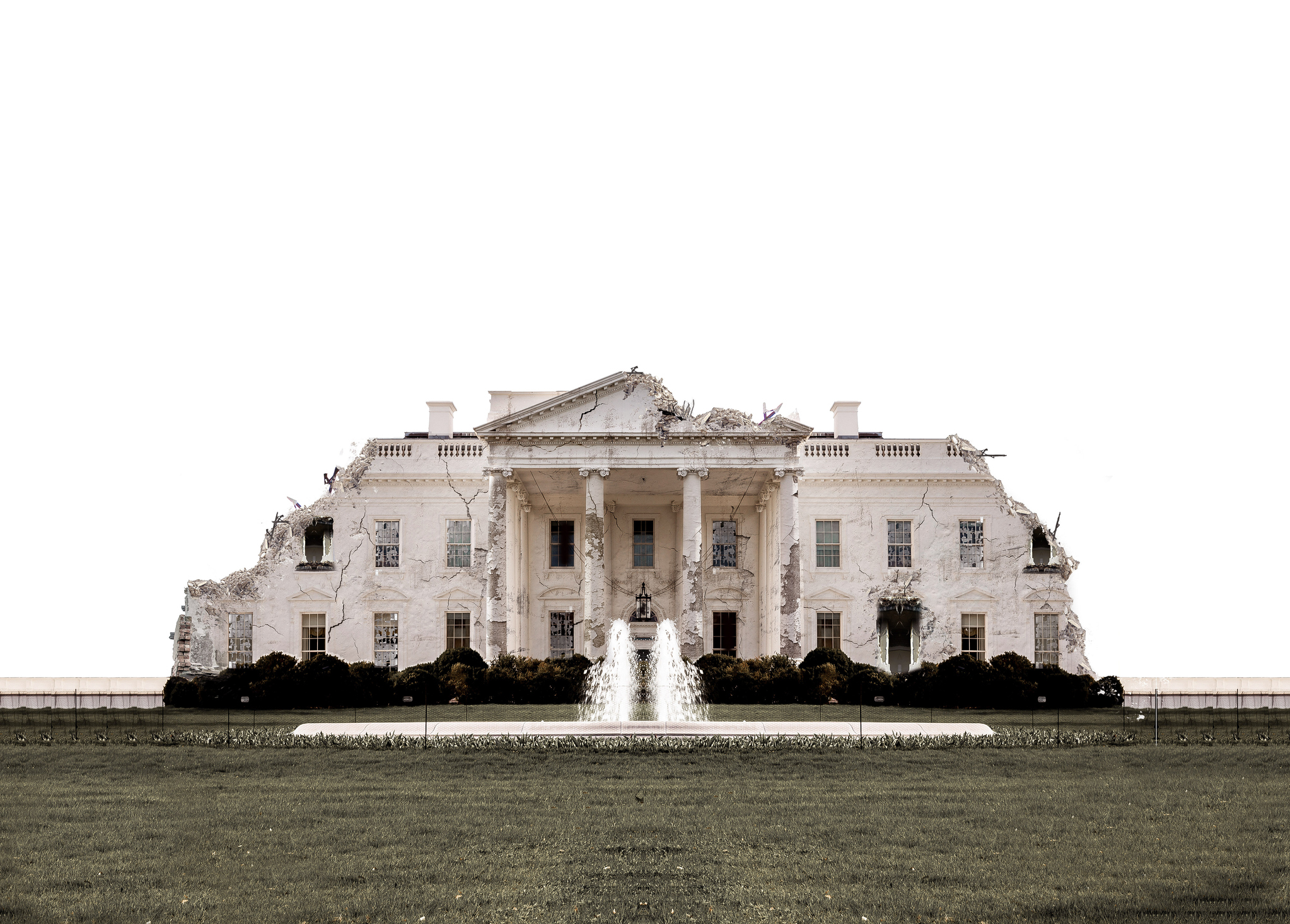Uncompromising discipline on crime is a must to merit the Republican nomination.
Robert Kennedy’s Movement
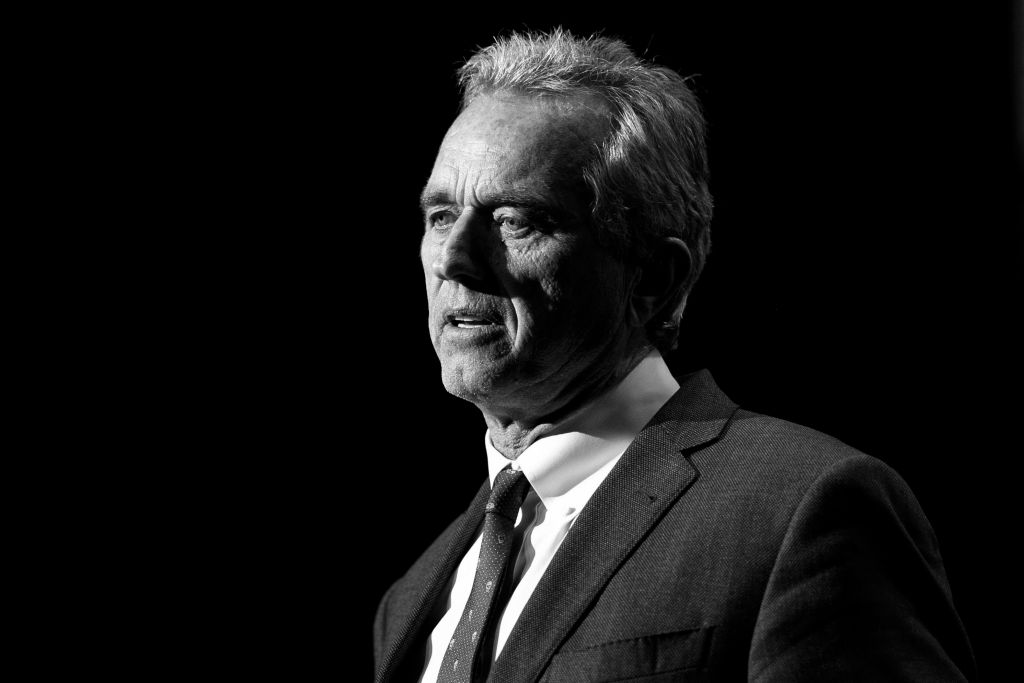
A broad new coalition won’t let COVID crimes be forgotten.
Up until a week ago, the 2024 presidential election campaign was by and large an uninteresting slog. The arrest of President Trump had shown some promise of injecting life into the race, but just a few short weeks later it is all but forgotten. Events that used to carry great significance which would be etched into the public memory for decades—like the investigation, prosecution, or impeachment of a president—have now been reduced to farcical shadow-play, gone in a moment. To generate lasting outrage or even attention, a story needs some element of surprise or departure from normalcy. But the new norm in politics is to destroy all norms. And since mainstream press catastrophizing has been dialed up to 11 since at least 2016, it rings hollower with every passing cycle. To anyone who has been paying attention, not even the most breathless histrionics on the part of professional observers makes a mark.
Yet America’s future really is in peril, facing existential threats both internally and externally. Flashpoints are erupting around the world. Our economy is dependent on the special status of our currency in the global market and the unquestioned military supremacy that backs it. Both the U.S. dollar and the U.S. military are hegemonic institutions in decline. Domestically, we are a population divided and unable to find a middle ground in which to establish any collective commitment to one another. Talk of national divorce or civil war was unthinkable a decade ago—now, it’s commonplace. We spend more on healthcare than any other advanced country, take more pharmaceuticals than any other first-world population, and still are sicker than all the rest. These are the elephants in the room of our current political discourse. Politicians prefer to talk about other things.
It is during such times that unconventional presidential candidates have caught wind in their sails. Jimmy Carter in 1976, Ronald Reagan in 1980, Patrick Buchanan, Ross Perot, and Bill Clinton in 1992, Ron Paul and Barack Obama in 2008, and Bernie Sanders and Donald Trump in 2016. And now, Robert F. Kennedy, Jr.
RFK Jr. is the fourth member of the Kennedy clan to seek the presidency and the third to mount a primary challenge against an incumbent Democratic president. His father, Senator Robert F. Kennedy, announced a campaign against President Lyndon B. Johnson in 1968. A couple of weeks later, Johnson dropped out. He was well on his way to winning the nomination when he was assassinated on the night he won the California primary. His uncle Ted Kennedy challenged President Jimmy Carter for the Democratic nomination in 1980. That was the last time an incumbent president lost multiple states to a primary challenger, and the damage Carter accumulated in that campaign was a decisive factor in his loss to Ronald Reagan.
It is a foregone conclusion that the Democratic Party will do everything it can to prevent a real primary campaign. The DNC has already announced that there are no plans to hold primary debates. That kind of thing would have smothered any primary challenger in the past, but the new media ecosystem offers the means for candidates to reach voters without the participation of the gatekeepers. Mr. Kennedy is already a seasoned professional when it comes to getting his message out by non-traditional means: he has faced intense censorship and ridicule, first as an advocate for vaccine safety and then as the leading voice against the medical-industrial complex during the COVID-19 pandemic.
Since Kennedy is a lifelong Democrat, he has held plenty of positions that will give conservative and independent voters heartburn. He retains a worldview that is still heavily rooted in 1960s American liberalism. But he is popular among many conservatives and independents in spite of this, because his priorities are so strongly focused on the most serious challenges facing the nation. His message is one that appeals beyond ideology.
When I attended his rally against vaccine mandates held on the National Mall in January 2022, I was struck by the sheer variety of American subcultures that were represented. There were busloads of homeschool moms with their beautiful healthy unvaccinated children in tow. A group of Buddhists carrying drums and softly chanting. A big contingent of MAGA folks. I talked to a guy from Portland, OR who had decided on a whim the night before to take a redeye flight to D.C.—he had voted for Bernie and then sat out the general election. There were black Muslims, Orthodox Jews, evangelical Christians. It was an American mosaic.
Seeing people from so many different walks of life coming together in unity that cold January day was deeply encouraging. Their deep differences faded when faced with the common threat of government power and corporate power, colluding in an attempt to rob them of their humanity. The key question is what can be done to mobilize this broad sentiment in an electoral campaign, when there are so many trigger-point issues that keep people on their respective ideological plantations.
I think this is in part why Mr. Kennedy has chosen to emphasize national reconciliation as a key part of his campaign message. He is pointing to an off-ramp, a way to avoid the nightmare scenario of civil war. In practice, national reconciliation is an inherently difficult process. In our present situation, it will be made even more difficult by the fact that so many Americans are hooked on mind-altering drugs. Achieving national unity in short order would require measures that lie far outside the Overton window. More realistically, the aim should be to avoid escalating the divide further, perhaps even cooling things down a bit, while healing the population and undertaking the key structural changes needed to build institutions worthy of trust.
For there to be reconciliation, there must first be truth and consequences. Some argue that we should just move on from the crimes against humanity inflicted these past few years by the government, the medical establishment, the pharmaceutical industry, and their propaganda organs. There are people who just want to move on and put the entire affair in their rearview mirror. Others, like those responsible for the actions and policies that directly and indirectly killed and tormented millions of Americans, want to move on and change the subject simply to evade accountability for their actions.
Russian dissident Aleksander Solzhenitsyn warned of the consequences of failing to pursue justice in the aftermath of Stalin’s reign of terror:
In keeping silent about evil, in burying it so deep within us that no sign of it appears on the surface, we are implanting it, and it will rise up a thousandfold in the future. When we neither punish nor reproach evildoers, we are not simply protecting their trivial old age, we are thereby ripping the foundations of justice from beneath new generations.
RFK Jr. is thus far the only announced presidential candidate who has declared his intention to prosecute officials who betrayed the public trust in the course of the pandemic. In a statement posted on Twitter, he said: “As President, I will direct my attorney general to investigate and prosecute every person who knowingly defrauded or deceived the American public about the safety and efficacy of medical products and I will obtain justice and compensation for every American who was injured or suffered the death of family members from those actions.” It is this pursuit of justice that would do the most to create conditions where national reconciliation could truly be accomplished.
Kennedy’s other campaign priorities follow a familiar anti-establishment theme: bring the troops home, stop meddling in other countries’ internal affairs, end the war in Ukraine by offering to withdraw our troops and nuclear missiles from Russia’s borders in exchange for the peace and independence of Ukraine, rein in the national security state, rebuild and revitalize the American economy, end corporate welfare, end the war on drugs, restore free speech, and so on: a sort of melange of libertarianism, nationalism, and liberalism. The unifying theme is that each policy position stands in sharp contrast to that of his primary opponent, President Biden.
In this David vs. Goliath contest, the odds that Kennedy can end up with the nomination are slim.
And yet there remains the outside possibility that his campaign can catch fire and give Biden a real run for his money. The DNC, with the support of Biden, changed the presidential primary calendar to deny first-in-the-nation status to Iowa and New Hampshire. Both of those states have already announced that they will not go along with this change and will continue to hold their nomination contests first. DNC rules prohibit candidates from adding their names to ballots in states that do not adhere to the DNC calendar, but RFK Jr. has already stated that he will accept the penalties of the DNC and contest both Iowa and New Hampshire. Biden is set to keep his name off the ballot in both states, offering Kennedy a chance to hit the ground in South Carolina and Nevada with the wind in his sails. With South Carolina as an open primary, and the GOP contest a foregone conclusion, Republicans and Independents will have the opportunity to cross over and support Kennedy against Biden.
Even absent winning the nomination, outsider presidential candidates often influence American politics even when they come up short. Congressman Ron Paul’s campaigns for president created a grassroots liberty movement that has succeeded in capturing seats in the U.S. Senate and House of Representatives, as well as numerous state and local offices. Ron Paul’s supporters also took control of an impressive amount of state and local Republican Party committees, a decisive factor in preventing the establishment from blocking Trump’s nomination at the 2016 GOP convention. Senator Bernie Sanders’s presidential campaigns led to a similar outcome, electing progressives across the country and taking over state and local parties. Something similar is possible here: we can hope that RFK Jr.’s campaign will provide a political vehicle for National Vitalism to make its debut on the political stage.
The American Mind presents a range of perspectives. Views are writers’ own and do not necessarily represent those of The Claremont Institute.
The American Mind is a publication of the Claremont Institute, a non-profit 501(c)(3) organization, dedicated to restoring the principles of the American Founding to their rightful, preeminent authority in our national life. Interested in supporting our work? Gifts to the Claremont Institute are tax-deductible.
And rightly so.
A time for unreasonable expectations and irrational politics.
The 2022 midterms were a blessing in disguise for the GOP.
Donald Trump, the GOP, and 2024.
Whoever wins in 2024, our problems run deeper.

